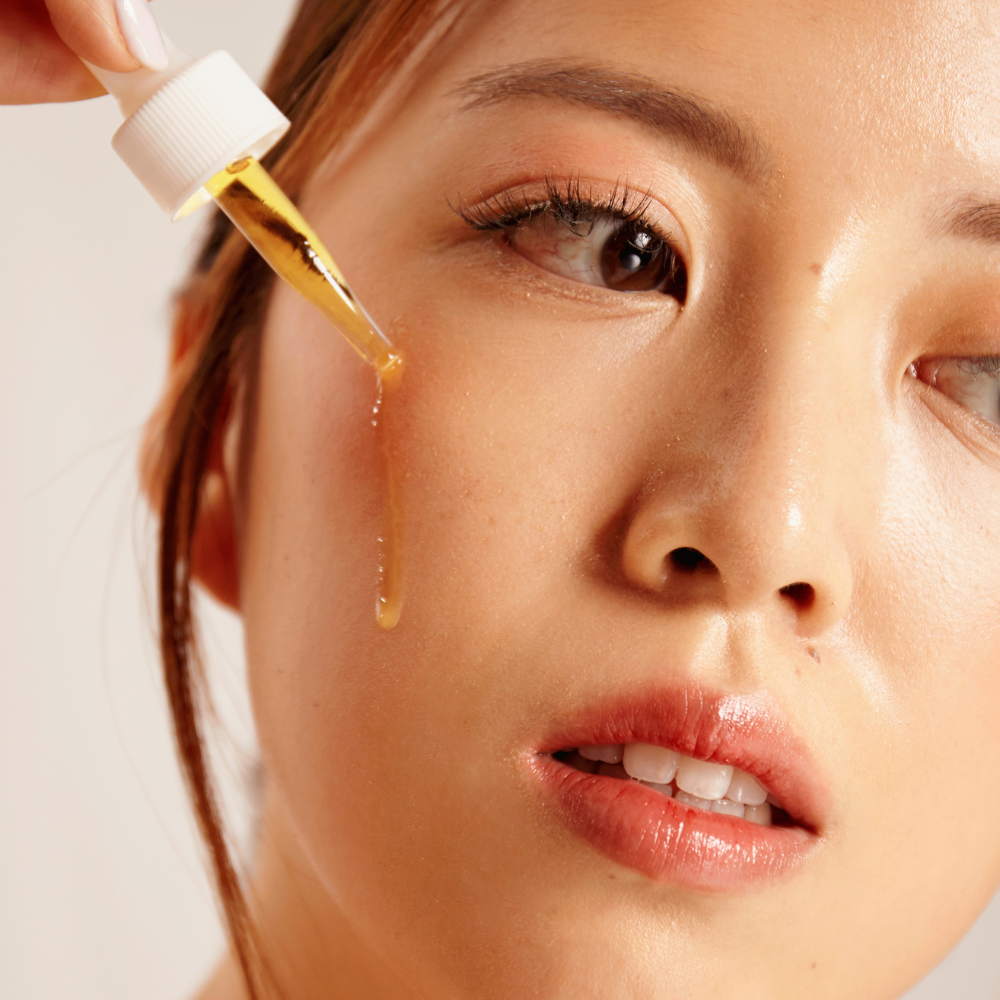
Table of Contents
- What is Vitamin C?
- What are the benefits of Vitamin C?
- How to add vitamin C to skincare routine?
- In short
- FAQ’s
There are plentiful ingredients added to skincare products these days. But there are some dermat-approved ones that surely need a place in your skincare. Take Vitamin C for instance! The most potent antioxidant known to man has the ability to effectively improve the appearance of skin.
In this blog, we’ll explore the skincare superstar Vitamin C benefits by understanding what vitamin c does to the skin and how to incorporate it in your skin regimen.
What is Vitamin C?
Vitamin C, also known as ascorbic acid, is a nutrient that helps our body to form blood vessels, cartilage and muscle. It is a water-soluble vitamin naturally found in citrus fruits like oranges, lemons, kiwi and in and leafy vegetables such as broccoli, spinach, cabbage. Vitamin C is also available in topical skincare products such as cleansers, moisturizers, sunscreens and the most popular vitamin C serum for face.

By fighting free radicals and slowing down aging is how vitamin c helps skin maintain overall health and appearance. It is an antioxidant that assists in bodily functions such as boosting the immune system, repairing skin tissues and producing collagen.
What are the benefits of Vitamin C?

Protects against sun damage
Long term sun exposure can prove dreadful for your skin. It can cause damage to the skin including wrinkles, skin sagging, uneven tone and texture. Your skin gets tanned, rough and irritated due to the sun's UV rays . Being a natural antioxidant, Vitamin C acts as an armour and helps defend the skin from the harmful effects of UV rays. It neutralizes the oxidative stress caused by free radicals and protects against environmental damage.
Lightens dark spots on face
Exposure to environmental stressors disrupts melanin production, the pigment that gives your skin its color, and causes discoloration. Vitamin C in topical treatments inhibits the production of melanin and helps reduce hyperpigmentation and dark areas on your face. Consistent use of Vitamin C on the skin has shown significant results.
Boost the production of collagen
Seeing signs of premature aging can be a little sad and concerning. The body naturally produces collagen that keeps your skin looking youthful. But with time your body slows down its production. Vitamin C is an approved ingredient in anti-aging skincare products as it stimulates and maintains collagen in the body. This further helps reduce the appearance of wrinkles and fine lines and make the skin look plump.
Has natural healing properties
One of the most important ascorbic acid uses for skin is its ability to heal wounds quickly. Vitamin C helps soothe skin irritation, reduce skin inflammation and fade redness. It also strengthens the skin's natural moisture barrier and keeps the skin hydrated which contributes to the repair of damaged skin cells.

Makes your skin glow
As we age, our skin loses key nutrients, one of which is Vitamin C, that keep the skin looking hydrated, vibrant and elastic. Vitamin c for face benefits our skin by retaining moisture in the skin cells and preventing dry and dull looking appearance. It has skin-brightening properties that promote an even-toned and radiant skin.
How to add vitamin C to skincare routine?

Vitamin C can be easily incorporated in your daily skincare routine. You can use Vitamin C cleansers,moisturizers and serums in the morning as well as at night. Vitamin c benefits all skin types and is gentle and effective on your skin. It works wonders on oily, dry, combination, sensitive and mature skin.
Using a topical vitamin C skincare product in the morning will help protect your skin from environmental damage and when used at night it'll help repair and rejuvenate your skin overnight. Make sure to use sunscreen in your AM skincare regimen when using Vitamin C for skin.
As a beginner, start with a lower concentration of 10% of Vitamin C and gradually increase the concentration based on how your skin reacts. Start slow and keep using it consistently to see noticeable results and reap the advantages of vitamin c.
In short,
Vitamin C isn't just any nutrient found in fruits and vegetables, it has a transforming effect on your skin. It has multiple benefits such as brightening the skin, fading hyperpigmentation, reducing skin aging and protecting it against damage. Now that you know the effectiveness of Vitamin C and how to utilize it, don't waste anymore time to add your preferred Vitamin C formulation in your regimen.
FAQ’s
What does vitamin c do for your skin?
Vitamin C is a natural antioxidant that protects the skin from environmental stressors, aids in collagen production and helps maintain healthy skin. It fades discoloration, prevents premature aging and improves skin elasticity.
Is vitamin C good for the face every day?
Yes, using Vitamin C daily is beneficial for your skin as it brightens, firms and protects the skin through consistent use.
When should I use vitamin C in my skincare routine?
You can use Vitamin C in both your morning and evening skincare routine but it is typically used in AM skincare. Vitamin C helps protect your skin and retains moisture through the day.
Is vitamin C really necessary in skincare?
No, Vitamin C isn’t a necessity in your skin care routine. It is ideal for people looking to achieve even-toned, youthful and radiant skin.
Does vitamin C whiten skin?
Vitamin C helps fade out dark spots or pigmentation, create an even toned skin and create the appearance of bright skin.
What happens if you use vitamin C without sunscreen?
Vitamin C makes the skin sensitive to sun exposure and not using sunscreen over Vitamin C can irritate the skin and cause sun damage. Thus it is crucial to use sunscreen with Vitamin C.
Written by Madiha Patel







